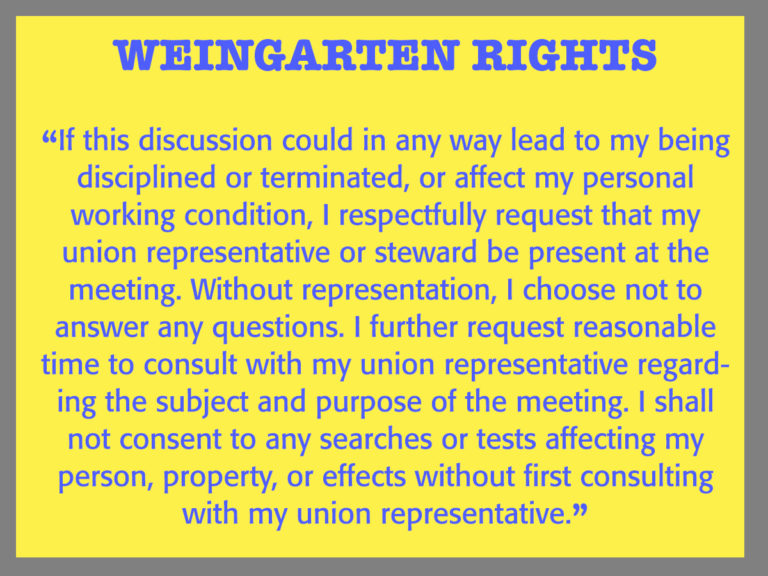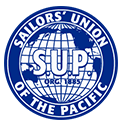See contact links and delegate overtime sheet link at bottom of page
The SUP Delegate:
The delegate, or union steward, is a member of the crew or workplace, (the ship or the shop), who is elected to represent the other SUP members on the job, and authorized to do so by the SUP. All members are eligible to be delegates, although they must have the qualifications of representatives outlined by the SUP Consititution, and should be experienced with the work involved and with the applicable agreement or contract.
We recognize and celebrate our Union delegates as workplace leaders. It comes with burdens and responsibiilties and frustrations for which there is no compensation except the gratification that comes from helping out our brothers and sisters. The job has a day to day responsibility to actively engage and be the primary point of Union contact with the membership. As a result, the delegate has a unique ability and opportunity to be at the center of all things that occur at the workplace -- whether it is the company violating the contract or whether the Union's agents are not immediately available to answer questions.
Many members rightly look first to the delegate and bosun for leadership and perspective. Delegates should therefore always strive to set a good example. They should also understand however that they are not alone: the full resources of the Union and its agents are standing by to assist.
Delegates are specially authorized by the Union to ensure adherence to the basic terms of employment as spelled out by the collective bargaining agreement, to account for the overtime, to investigate the dues status all members in the unit, and to aid in communication between members and the Union. Delegates are also authorized to represent members requesting representation in disciplinary or other matters, and to perform basic contract interpretation duties for members and/or supervisors with the assistance of the Union.
Delegates are not authorized to re-negotiate the terms and condition of the collective bargaining agreement
To provide SUP shipboard and workplace delegates with all the resources they need to be effective please see the following documents and references.
Special Legal Status of Union Delegates
Under the National Labor Relations Act, when stewards and officers engage in representational activity, including grievance meetings and bargaining sessions, behavior that in other circumstances would warrant discipline must be tolerated.
According to one NLRB ruling, “The relationship at a grievance meeting is not a 'master-servant' relationship but a relationship between company advocates on one side and union advocates on the other side, engaged as equal opposing parties in litigation.”
The principle of union equality, sometimes termed “steward’s immunity,” is also recognized by the courts. The Fifth Circuit said the NLRA protects “against discipline for impulsive and perhaps insubordinate behavior that occurs during grievance meetings, for such meetings require a free and frank exchange of views...”
Arbitrators generally agree. Typical is this ruling by arbitrator Fred Witney: “...the [steward] was not in the status of an employee when he called the division manager a fool and liar. ...the relationship was between a Company and Union representative.... They stood as equals when negotiating the grievance.”
When does the equality principle apply? Being a steward is not a general license to tell management to “stick it.” The equality principle applies when a steward acts in a representational capacity: argues a contract matter, attempts to resolve a problem, investigates a complaint, requests information, presents a grievance, disputes a decision affecting the bargaining unit, or leads a union protest.
It does not always apply when a steward acts in his or her individual capacity of employment, but only in a representative role.
It is very important to remember that the NLRA protection has its limits, and that whatever protections are in place legally that may not be the case in practical terms on board the ship. Management may impose discipline for “egregious” misconduct. For example there is no protection for making racial epithets, physical threats, or blocking or touching a supervisor.
Stewards can also be disciplined for dishonesty, soliciting false testimony, taking part in illegal walkouts, or disrupting business meetings or work activities.
To deter a supervisor from mischaracterizing your conduct, ask one or more co-workers to join you during discussions with management. Also, know the difference between representation and individual employment situations. If there are any questions or doubt, don't risk your job to make a point: contact the Union.
UPDATE: The Trump NLRB in 2020 amended the special protection rule such that it may not protect against discipline of stewards who engage in profanity or "abusive" behavior, despite many years of precedence that exempts the use of impulsive or "salty" language.
Sexual Abuse and Sexual Harassment (SASH)
All mariners deserve a workplace free from sexual abuse and sexual harassment. Any incidents should be immediately reported to the employer via persons in charge, available hotlines, either at sea or ashore.
Here are some of the core elements of SASH in a helpful guide with links to more information.
Basics of SASH policy from SOCP
Marad's Every Mariner Builds a Respectful Culture program helped investigate, develop, and promulgate important legislation, policies and procedures to address SASH at sea. Here is a helpful checklist.
The Ship Operations Cooperative Project (SOCP) in partnership with MarAd and industry developed the following comprehensive guide on SASH Best Practices at:
Weingarten Rights
In 1975 the United States Supreme Court in the case of NLRB v. J. Weingarten, Inc. 420 U.S. 251 upheld a National Labor Relations Board decision that employees have a right to union representation at investigatory interviews. These rights have become known as the Weingarten Rights.
During an investigatory interview, the Supreme Court ruled that the following rules apply:
Rule 1
The employee must make a clear request for union representation before or during the interview. The employee cannot be punished for making this request.
Rule 2
After the employee makes the request, the employer must choose from among three options:
Grant the request and delay questioning until the union representative arrives and (prior to the interview continuing) the representative has a chance to consult privately with the employee;
Deny the request and end the interview immediately; or
Give the employee a clear choice between having the interview without representation, or ending the interview.
Rule 3
If the employer denies the request for union representation, and continues to ask questions, it commits an unfair labor practice and the employee has a right to refuse to answer. The employer may not discipline the employee for such a refusal.
In July 2000, the NLRB under the Clinton administration extended the Weingarten Rights to employees at nonunionized workplaces. On June 15, 2004, the NLRB under the George W. Bush administration effectively reversed the previous ruling by a three to two vote.

Duty of Fair Representation for Delegates and Union Stewards
1. Investigate all grievances fairly and fully.
2. Don't discriminate against members.
3. Pay attention to time limits in your grievance procedure, if any.
4. Don't play favorites or act in an arbitrary manner.
5. Represent all members equally and in good faith.
6. Keep members informed.
7. Investigate, prepare and present grievances in an above-board and professional manner.
8. Don't "horse trade" grievances. Handle each grievance on its own merit.
9. Remember that not all grievances are necessarily advanced beyond investigation, particularly to arbitration. Some are without basis in contract violation, determined to be un-winnable, or lack evidence or other supporting data.
SUP DELEGATE MATERIALS AND UNION CONTACT INFORMATION
SUP Delegate's Record and Overtime Sheet
To contact SUP Headquarters please call 415 777 3400 and identify as delegate of your ship or shop. Leave a message if agents are busy.
To contact Seattle call 206 467 7944 or email seattle@sailors.org
To contact Wilmington call 310 835 6617 or email wilmington@sailors.org
To contact Honolulu call 808-533 2777 or email suphono@hono.com
To email SUP HQ write to roy@sailors.org, matt@sailors.org or dave@sailors.org


